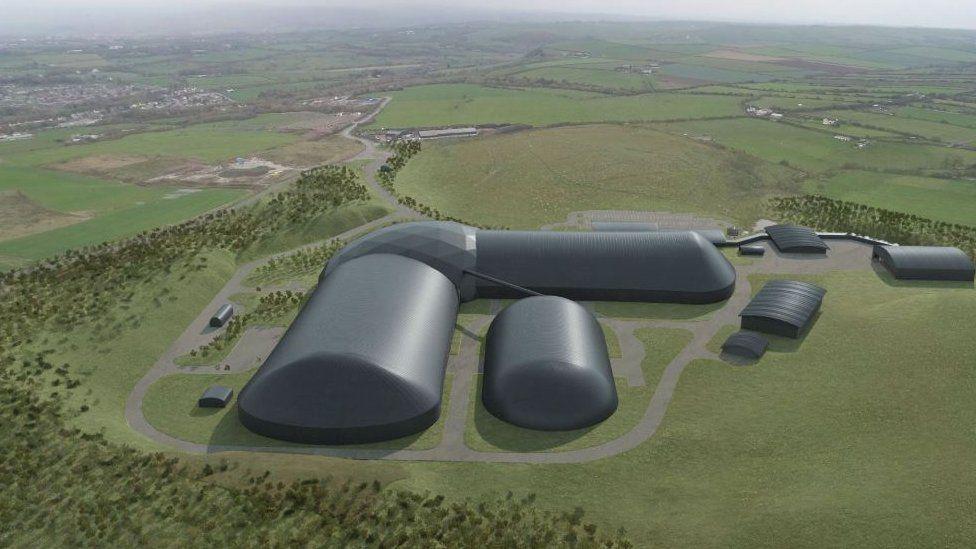Where candidates for MP stand on new coal mine plan
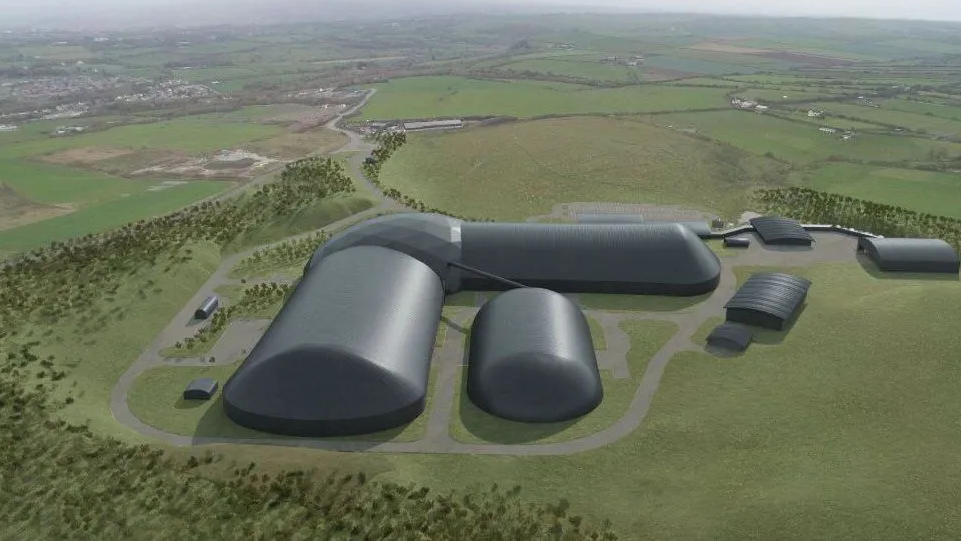
The mine would supply coking coal to the steel industry
- Published
West Cumbria has been a happy hunting ground for the Conservatives in recent elections, with victories in seats long held by Labour.
But following boundary changes and with a big poll lead, Labour are hoping for a win in the new constituency of Whitehaven and Workington.
The area is home to a crucial piece of national infrastructure in the form of Sellafield, where most of the UK’s nuclear waste is currently stored, and 11,000 people earn a living.
Coal and steel production are a key part of the area's industrial heritage, and now there is the prospect of a new mine to supply coking coal to the steel industry.
Developer West Cumbria Mining says it would create over 500 jobs.
But the proposed mine is a contentious project, and one over which the parties vying for this seat have clashed.
Conservative Andrew Johnson is the only candidate offering full-throated support to the potential new colliery.
It has attracted criticism from many quarters, including environmental campaigner Greta Thunberg and the former US climate envoy John Kerry.
But it enjoys strong support from plenty of locals who want to see more jobs and the return of an industry that inspires pride.
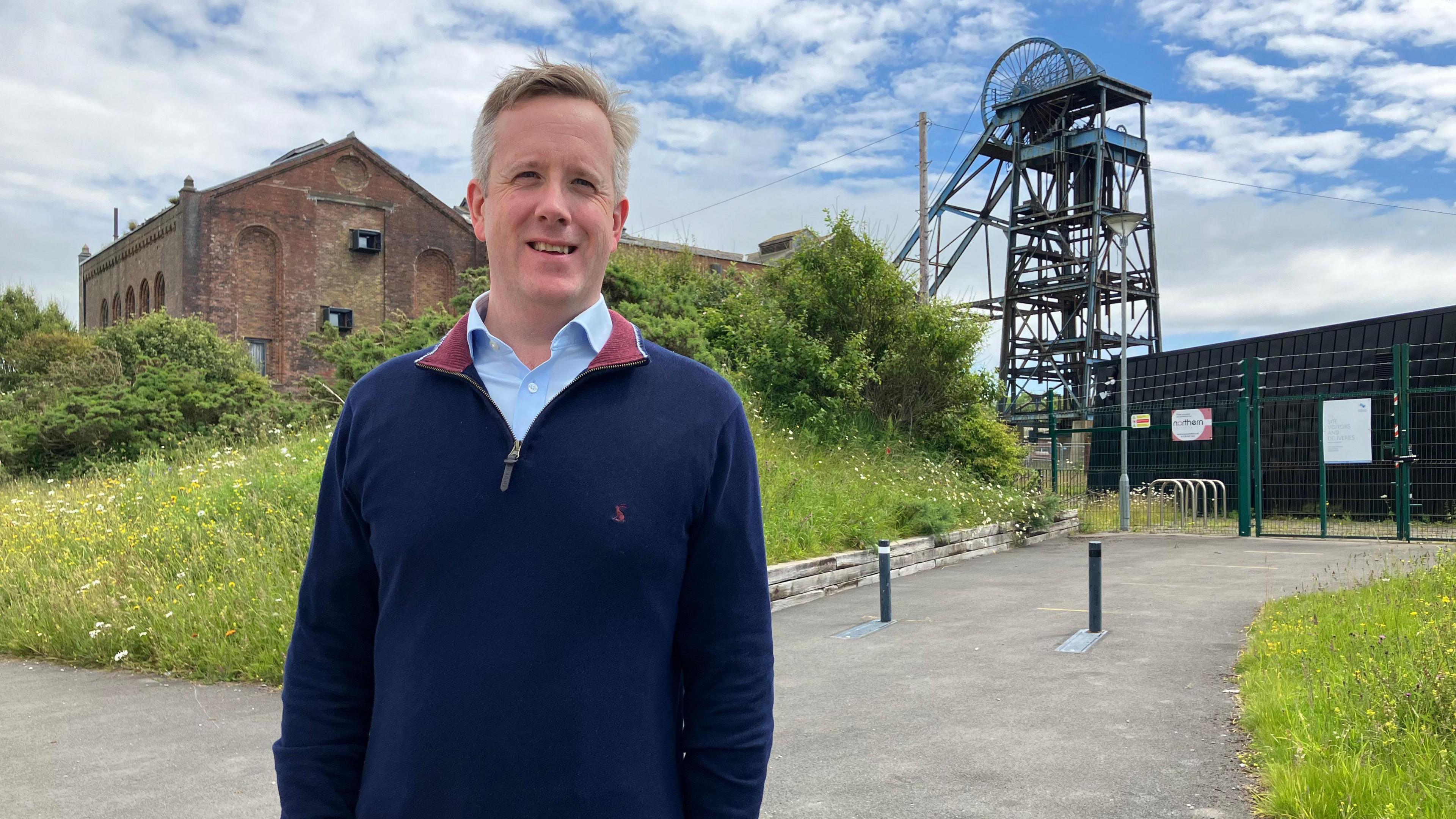
Tory candidate Andrew Johnson supports the new mine
Standing in front of the pithead at Whitehaven’s last deep coal mine, Haig Colliery, which closed in 1986, Andrew Johnson said he understood the environmental concerns but urged people to be pragmatic.
He said: "This is going to be mined somewhere in the world. I would far rather it were mined here, in a sustainable fashion, to bring in employment and jobs and opportunity to West Cumbria, than in another country."
The Conservative government gave the project planning permission in 2022, but it has since been held up by a legal challenge from opponents, with a court hearing due next month.
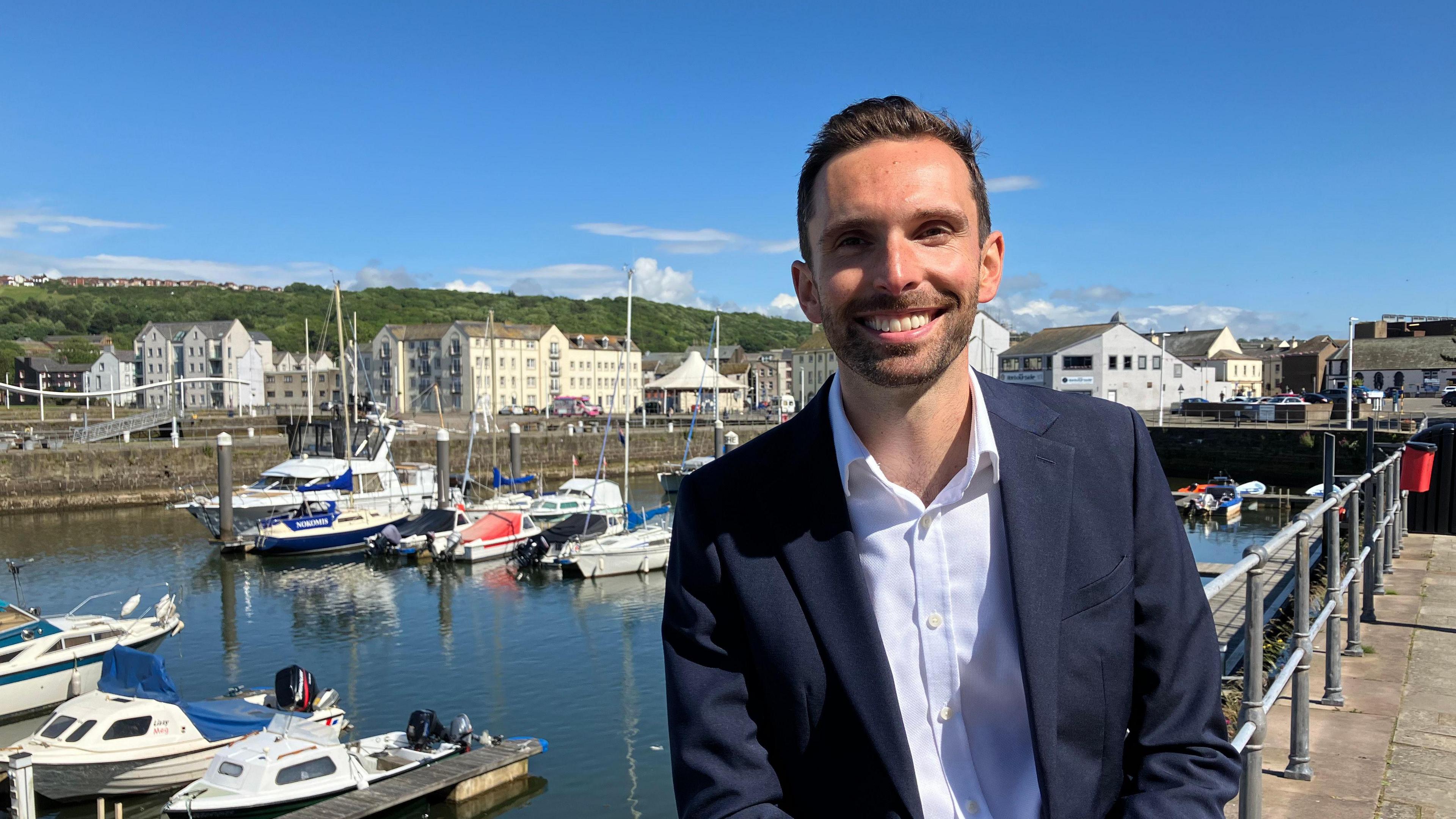
Labour candidate Josh MacAlister did not say what Labour would do about the mine
The shadow energy secretary Ed Miliband has previously been quoted, external as saying a Labour government would seek to stop the mine being built.
The local candidate Josh MacAlister would not be drawn on what Labour would do, should the High Court rule in the developer's favour, but he said his party was focused on a vision of jobs “for the future”, built around its industrial strategy and clean energy.
"The Port of Workington could become a major hub for green jobs and Labour are offering a port investment, which if we were securing that for Workington would mean three pounds of private investment for every pound of public investment," he said.
Both of the main Westminster parties are promising investment in new atomic power, with land near Sellafield among the sites that could host a new smaller type of nuclear reactor.
Reform UK’s candidate David Surtees said he supports the coal mine, albeit it with caveats.
And, as a nuclear worker, he is keen on the idea of new power generation in the constituency.
He said: "I’m very much in favour of new nuclear.
"We need energy to come online quickly and we need it to be British-owned, not owned by the French or someone else."
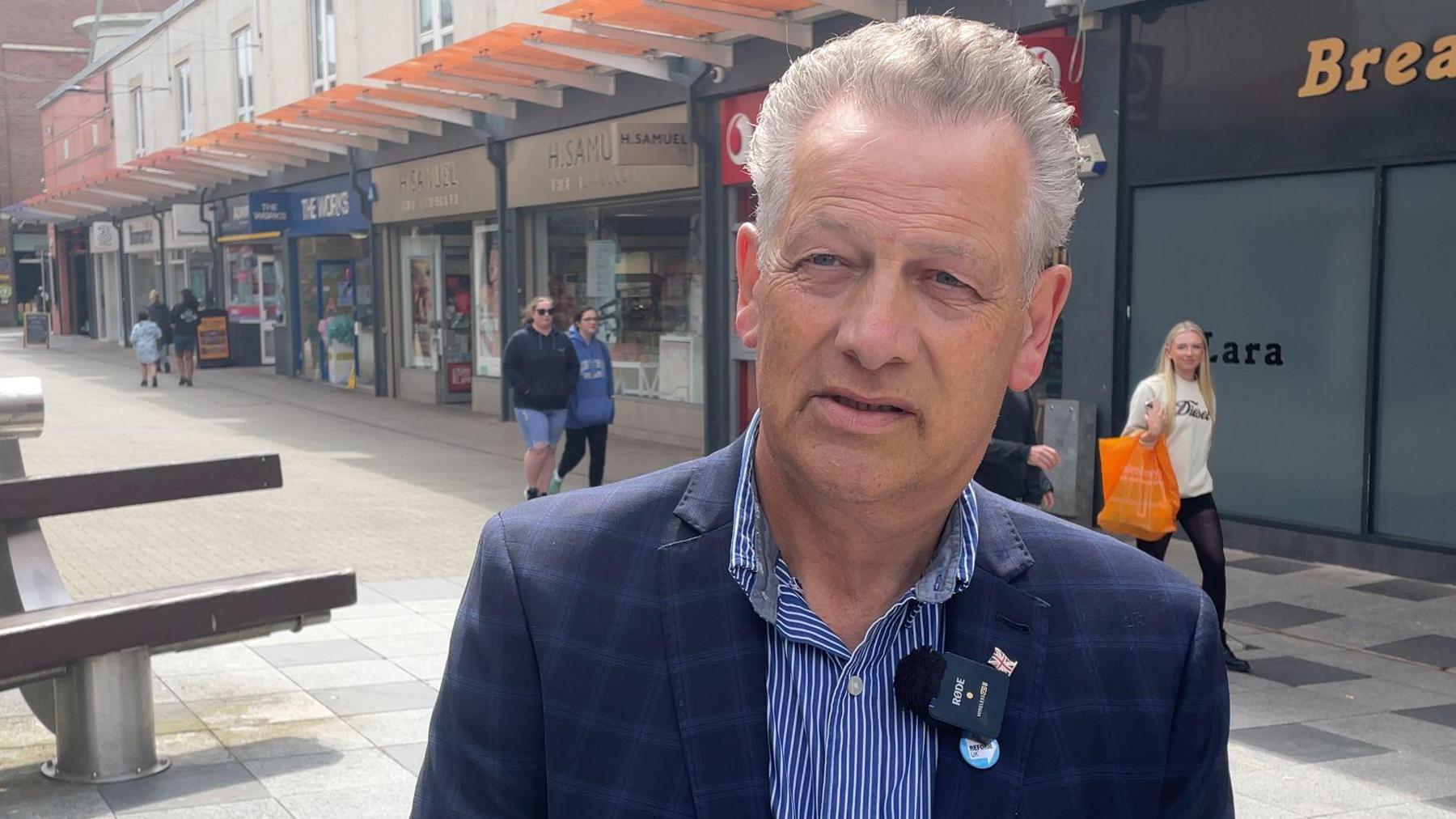
Reform's David Surtees said he is in favour of the mine
Of those standing in the seat, Green candidate Jill Perry is the only one opposed to nuclear energy, arguing renewables such as wind are quicker and cheaper to deliver.
"Here we are in one of the windiest counties in the windiest country in Europe and we have a good resource here, which really should be exploited," she said.
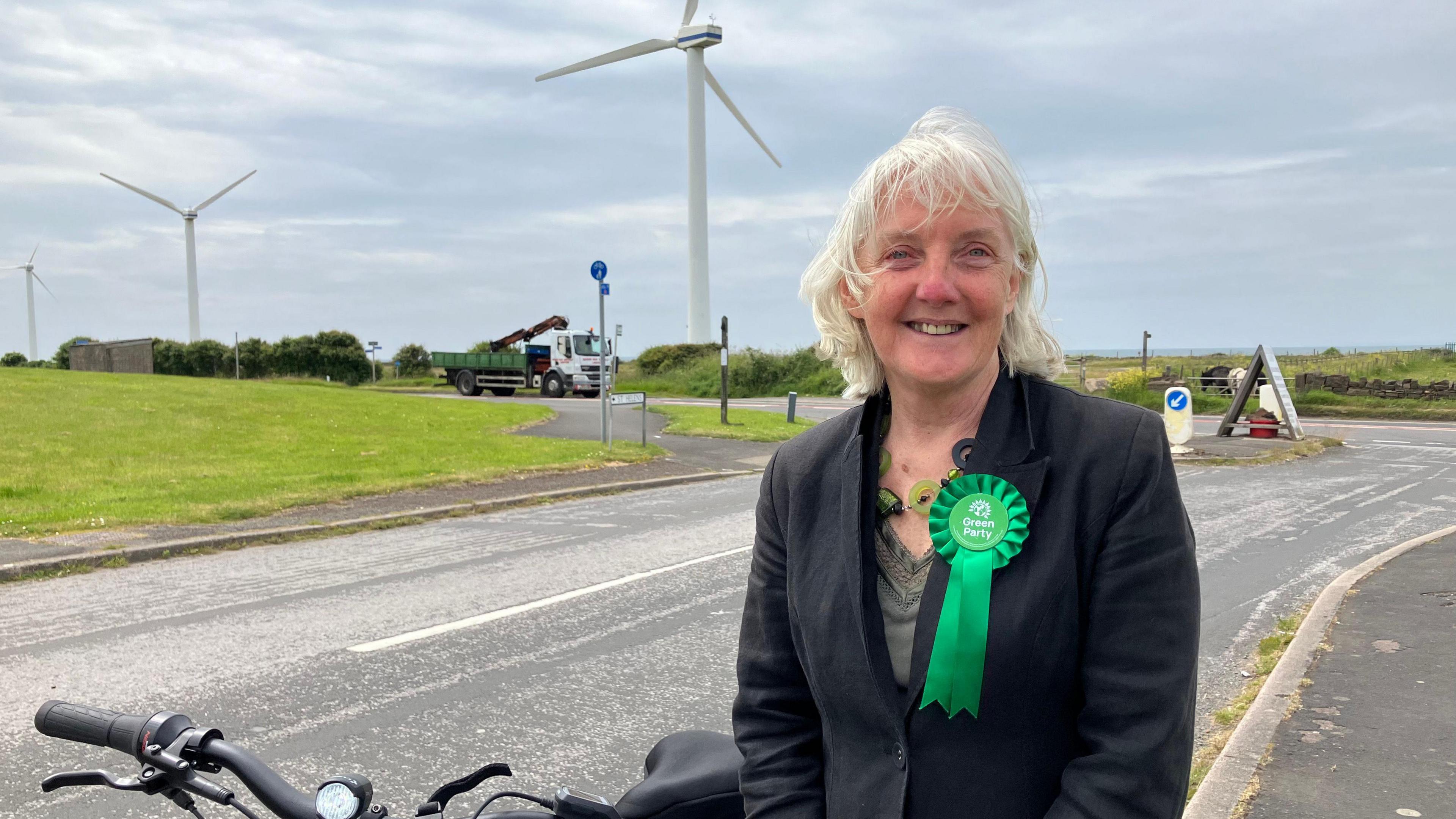
Green candidate Jill Perry is opposed to nuclear energy
The Liberal Democrat candidate Chris Wills said saving energy was also a priority, with an offer of free home insulation for those on low incomes.
“With all the help that we wish to put in with energy costs and energy security for homes, all of it won’t be as productive as it can be, without good insulation," he said.
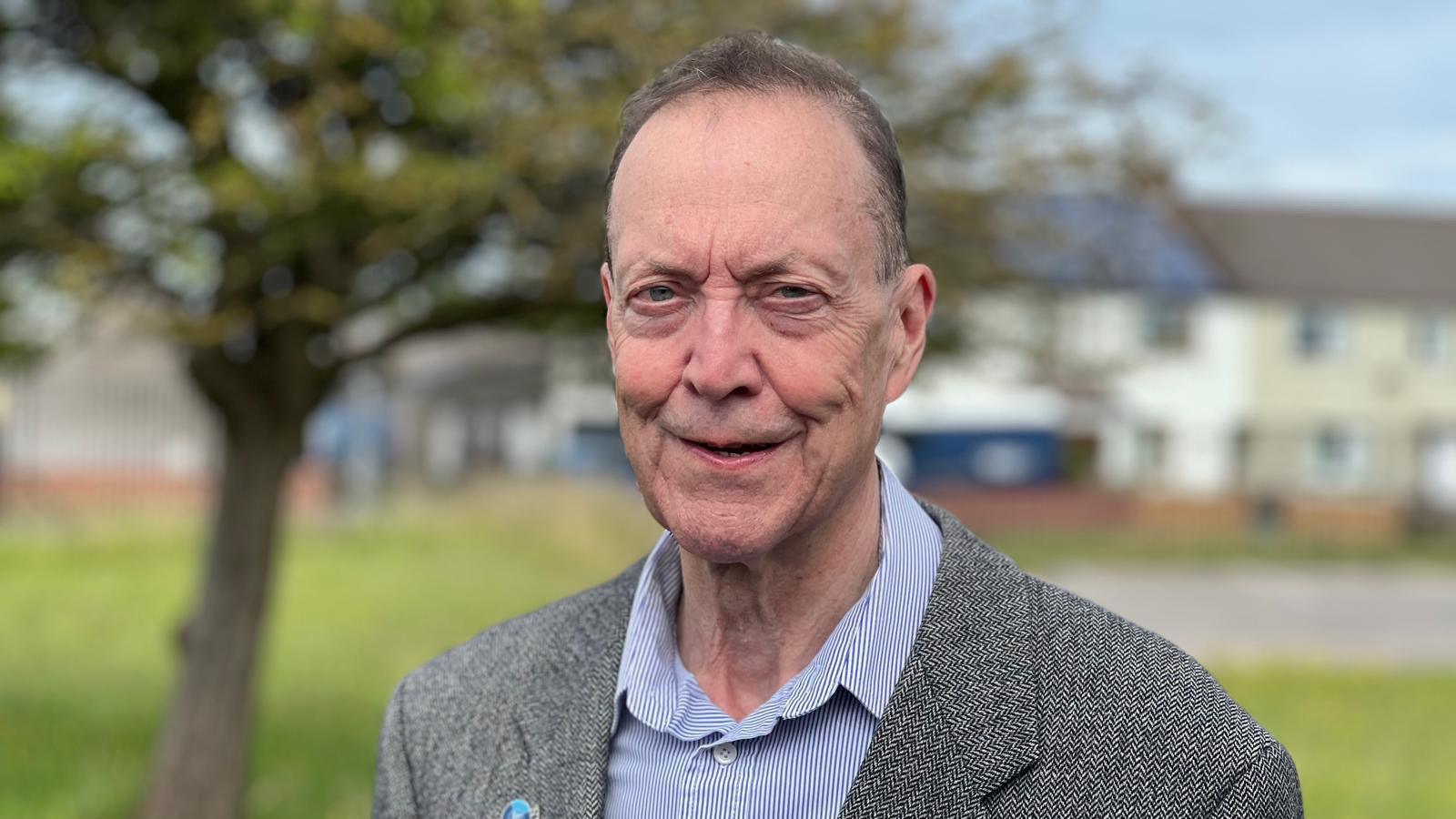
Liberal Democrat candidate Chris Wills said saving energy was a priority
The parties all have clear ideas about how to bring new jobs and industry to the area.
However, many of the same proposals were discussed in the run-up to the last election in 2019.
Some voters may wonder whether any of them will come to fruition, and if so when.
Follow BBC Cumbria on X (formerly Twitter), external, Facebook, external and Instagram, external. Send your story ideas to northeastandcumbria@bbc.co.uk.
Related topics
More stories from BBC North East and Cumbria
- Published3 December 2023
